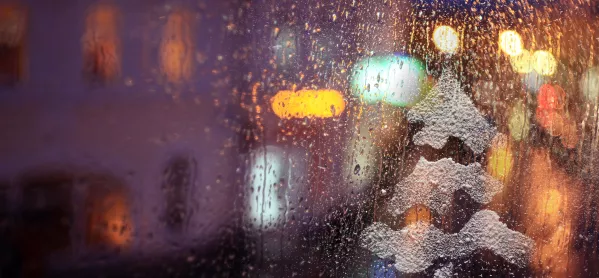Heads ‘devastated’ by decision not to close early

Headteachers and depute headteachers from across Scotland have expressed their extreme disappointment at the Scottish government’s decision not to allow schools to move to remote learning in the final week before Christmas.
A meeting of the EIS teaching union’s Headteacher and Depute Headteacher Network heard first-hand testimony about the workload pressure on school management teams as a result of Covid contact-tracing requirements whenever a pupil or staff member tests positive for the virus.
Details of the meeting emerged after education secretary John Swinney tried yesterday to assuage concerns about the Covid-related demands that will be placed on school leaders over Christmas.
Background: Heads told they will get a break over Christmas
Coronavirus: Christmas holidays will not be extended
Teacher safety: ‘Clear support’ for industrial action over Covid safety
Open letter: ‘You have the lives of school staff in your hands’
Headteacher and network convener Lorraine McBride, speaking after the network meeting yesterday, said: “The Covid pandemic has had a severe impact in our schools and has created huge stresses on everyone within our communities. Quite apart from the impact on the physical health of many teachers and students, there has also been a severe impact on their mental health and wellbeing. Added to this has been the huge additional workload burden generated by the demands of the contract-tracing system, which frequently interrupts weekend and evenings on top of taking up swathes of time during the school day that should be being spent on other essential priorities.”
Coronavirus: Teachers ‘are exhausted’
Ms McBride added: “It is concrete support that we need - not just fine words from the Scottish government or our employers telling us how much they appreciate us. Many [heads] and [deputes] have been left absolutely devastated by the Scottish government’s decision not to allow schools to close their buildings early and move to remote learning in the final week before Christmas. This decision means that, where positive cases are identified late, SMTs [senior management teams] may be expected to deliver or support contact-tracing work over the Christmas period.
“The Scottish government’s decision also significantly increases the risk of pupils and staff taking the virus into their homes, or into the homes of potentially vulnerable family members, during the festive period.”
Ms McBride said: “All we were asking for was for school buildings to close a few days early, in order to protect us all and our families. Education would have continued via remote learning and we were absolutely not asking for extra holidays, as has been falsely claimed elsewhere. In failing to take a small, commonsense step to protect teachers, pupils and their families, the Scottish government is risking what little goodwill remains amongst a teaching profession that has been worn down to the point of physical and mental exhaustion over this past year.”
Meanwhile, the Scottish Secondary Teachers’ Association (SSTA) has shared comments it has received from members following the news that arrangements for schools over the Christmas period would not be changing.
One said: “I am dreading being told to isolate during the last week of term. I’ve not seen my mum inside since October when the positive cases started at school. I’m the only person she sees and I usually have her round for a meal once a week. I no longer feel this is safe and the impact on her mental health and cognitive reasoning is marked. I will not be able to have her round at Xmas and she will have her dinner (delivered by me) on her own. I hold the FM [first minister Nicola Sturgeon] responsible for this. It would be a simple matter to have all schools move to remote learning for the 14 days before Christmas to keep staff, pupils and their families as safe as possible.”
Another teacher said: “Like others in the public sector, teachers are going above and beyond and so [the decision on Christmas arrangements] feels like a kick in the teeth.”
You need a Tes subscription to read this article
Subscribe now to read this article and get other subscriber-only content:
- Unlimited access to all Tes magazine content
- Exclusive subscriber-only stories
- Award-winning email newsletters
Already a subscriber? Log in
You need a subscription to read this article
Subscribe now to read this article and get other subscriber-only content, including:
- Unlimited access to all Tes magazine content
- Exclusive subscriber-only stories
- Award-winning email newsletters